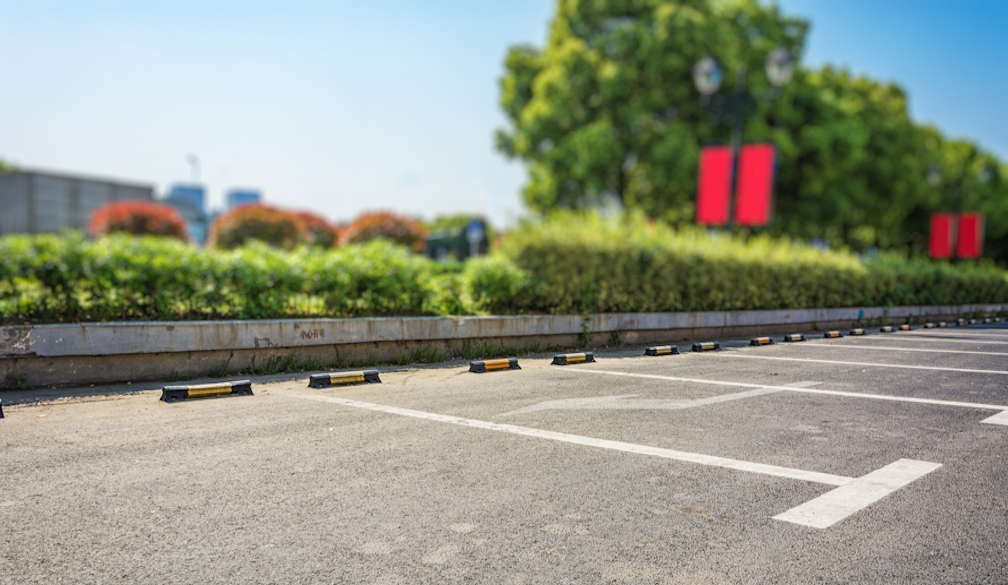Rubber vs Concrete Wheel Stops: Which is Better for Your Car Park?

When it comes to setting up a car park in Perth, wheel stops are a small feature that make a big difference. From improving driver accuracy to preventing costly damage, the right choice between rubber and concrete wheel stops could save you time, money, and future headaches.
So which is the better option for your property? Let’s break it down in plain terms.
Why Are Wheel Stops Important?
Wheel stops are the low barriers you often see at the end of parking bays. Their main job is to keep vehicles from rolling too far, protecting fences, walls, gardens, footpaths, or even other cars.
For Perth’s mix of shopping centres, apartment blocks, schools, and industrial sites, they’re an essential part of safe car park design.
The Two Most Popular Options
- Concrete Wheel Stops
These are made of precast concrete and are known for being tough and long-lasting. - Rubber Wheel Stops
Usually made from recycled materials, they’re lighter, flexible, and easier to handle.
Both types are widely used across WA, but each comes with its own pros and cons.
Concrete Wheel Stops: Strength and Stability
Concrete wheel stops are the traditional choice. Many large commercial facilities prefer them because they feel sturdy under pressure and tend to stay put once installed.
Pros:- Very durable and hard to move once set
- Ideal for heavy-duty applications (trucks, industrial vehicles)
- Can handle harsh weather and temperature changes
Cons:
- Heavy to install and can crack if hit too hard
- Often more expensive to transport and place
- May damage vehicles if not aligned properly
Rubber Wheel Stops: Safer and Sustainable
Rubber wheel stops, especially those made from recycled rubber, are gaining popularity across Perth car parks. They’re safer on impact, environmentally friendly, and easier to install.
Pros:- Lighter and quicker to install (perfect for retrofits)
- Less damage to vehicles on contact
- Made from recycled materials (eco-conscious)
Cons:
- May shift over time if not anchored properly
- Not suitable for high-load areas (heavy trucks)
- Can degrade under extreme sun if UV protection is poor
Comparing Installation Effort
Installation is where the real differences show. Concrete wheel stops require two or more people, a truck, and often some lifting equipment. By contrast, rubber stops can often be installed by a single team member using basic tools.
If you're a property manager looking for wheel stops installation Perth, this difference matters, especially for tight timelines or remote locations.
Maintenance and Safety
Concrete wheel stops can chip, crack, or even break if a vehicle bumps into them at speed. This not only creates a hazard but also increases repair costs. Rubber options are far more forgiving on both vehicles and surfaces.
Plus, rubber versions often come with built-in reflective strips, making them highly visible at night or in low light, an advantage for shared car parks or poorly lit areas.
Compliance and Australian Standards
Regardless of material, wheel stops must follow spacing and sizing rules as per AS 2890.1. This standard ensures:
- Wheel stops are 1650mm wide
- Height stays between 90mm–100mm
- Installed no more than 1m from the front of the bay
Working with a trusted local provider ensures your installation meets these standards.
Cost Breakdown: Which Saves More?
If we break it down:
|
Feature |
Rubber Wheel Stops |
Concrete Wheel Stops |
|
Price |
Moderate |
Lower unit cost but higher install |
|
Install Time |
Quick (1 person) |
Slower (team needed) |
|
Freight Cost |
Low (lightweight) |
High (heavy to transport) |
|
Vehicle Safety |
Softer impact |
May cause damage |
|
Durability |
5–10 years |
10+ years if maintained |
Rubber wheel stops Perth options often work out cheaper overall when factoring in installation and labour.
When to Use Which?
Choose concrete when:
- Heavy-duty vehicles are involved
- Long-term durability is critical
- Vandalism is a concern (they’re harder to move)
Choose rubber when:
- Installation speed matters
- You want a softer, safer material
- Sustainability is part of your brand
If your property suffers from poor visibility or a history of minor parking damage, rubber options can be a smart upgrade.
Common Mistake to Avoid
One of the biggest mistakes we see in Perth is improper anchoring. Whether you choose rubber or concrete, loose or poorly placed wheel stops can cause more harm than good.
If you’ve had complaints about shifted or damaged wheel stoppers, or need a reliable fix, consider speaking to local experts in wheel stoppers for cars Perth who offer supply and full installation services.
Final Verdict
There’s no one-size-fits-all solution. The best choice depends on your site, your users, and your budget. But in general:
- Rubber = safer, quicker, more flexible
- Concrete = stronger, more permanent
The key is making a choice that balances safety, cost, durability, and aesthetics, and getting the installation done properly.




















